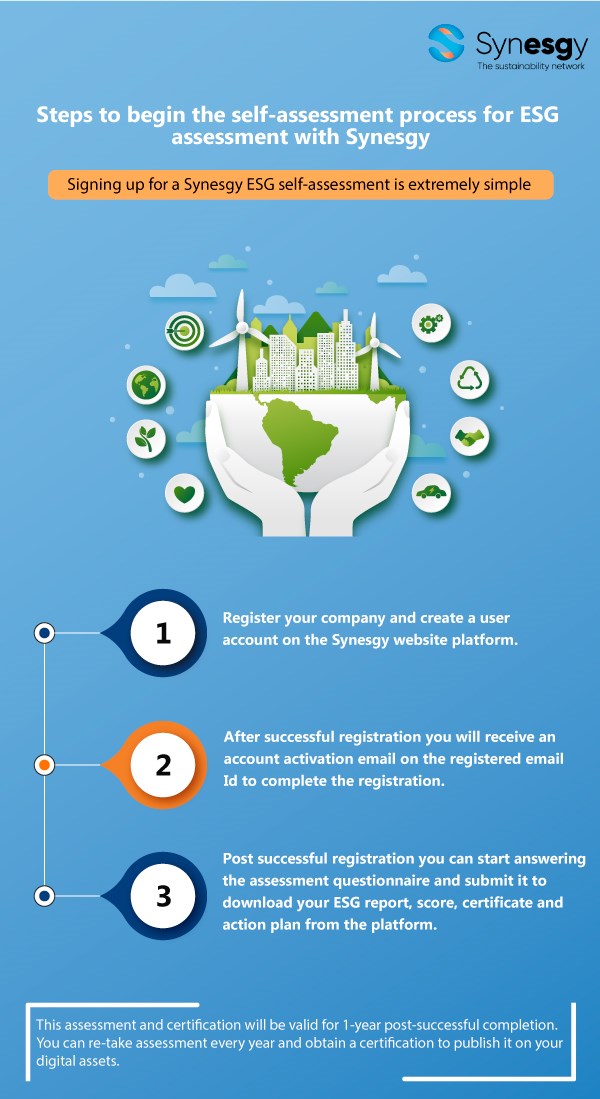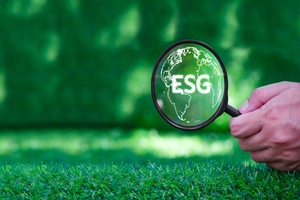Wilfred Sigler
Senior Director, CRIF India and South Asia
Businesses are under increasing pressure to incorporate sustainability into their operations. ESG (Environmental, Social, and Governance) assessment has emerged as a vital tool that enables companies to evaluate their performance in these critical areas. By adopting a data-driven and comprehensive approach, ESG assessment goes beyond regulatory compliance, offering companies invaluable insights into their strengths, weaknesses, and untapped potential.
However, navigating the vast landscape of ESG assessment can be overwhelming, with complexities and jargon clouding the path to understanding. In this blog, we will explore the ESG self-assessment process, its benefits, and how it can guide businesses toward a path of sustainable success.
What is ESG Self-Assessment?
An ESG self-assessment is a process to evaluate a company’s environmental, social, and governance practices and the overall sustainability performance of its business. It involves collecting, analysing, and benchmarking data related to various ESG criteria to gauge the company's impact on the environment, its stakeholders, and its corporate governance practices.
Benefits of ESG-Self Assessment and ESG Certification
Companies and investors increasingly seek supplier and partner disclosure of sustainability policies and practices. For many suppliers and partners, such public disclosure remains challenging as it is difficult to identify and manage ESG risks and opportunities.
With strong sustainability performance, make a business case in your favour with opportunities extending beyond the obvious such as:
- Gaining a competitive advantage against non-certified peers
- Getting more business from clients who follow sustainable practices and are willing to work with only ESG-certified companies
- Driving your top-line growth- Tap new markets and expand into existing ones
- Mitigating regulatory and legal intervention
- Reducing your operating costs by minimising waste and increasing your operational efficiency
The Synesgy Model
Synesgy is a global digital platform specialised in ESG assessment of companies to assess their sustainability performance. The assessment covers a wide range of environmental, social, and governance (ESG) criteria and provides companies with a score, action plan, and benchmark for their performance.
The ESG assessment is based on a detailed qualitative-quantitative questionnaire to determine the organisation’s ESG performance. Various automatic and manual tests are conducted to assess the quality of the responses received, and inconsistencies are immediately flagged.
After the comprehensive assessment, an ESG score and a detailed Synesgy report are generated along with an action plan, identifying areas for improvement. The report includes an in-depth analysis of each environmental, social, and governance aspect relevant to the industry sector, contributing to the ESG score.
The Synesgy score model offers a user-friendly way to visualise scores across the 5 key sections of the questionnaire: Business, Environment, Social, Governance, and Industry. These individual sections are then amalgamated into an "overall" score, providing a comprehensive evaluation.
For businesses seeking to assess their supply chain, Synesgy goes a step further by offering ESG performance dashboards. Through these dashboards, companies gain insights into the scores achieved by their suppliers in various areas, facilitating a detailed analysis of their ESG performance.
The Synesgy Advantage
The Synesgy methodology is built on international sustainability standards, including the Global Reporting Initiative (GRI), the United Nations Global Compact, the Carbon Disclosure Project, and Taxonomy guidelines.
Synesgy enables you to publish your ESG sustainability scores to global businesses demanding ESG assessment and certification. It will signify your sustainability commitments and attract investors, experts, and customers.
Synesgy Assessment Process

With Synesgy as your trusted partner, navigate the world of ESG assessment armed with data-driven insights that align with your values and goals. Reach out for more about conducting efficient ESG self-assessments with CRIF Synesgy.

